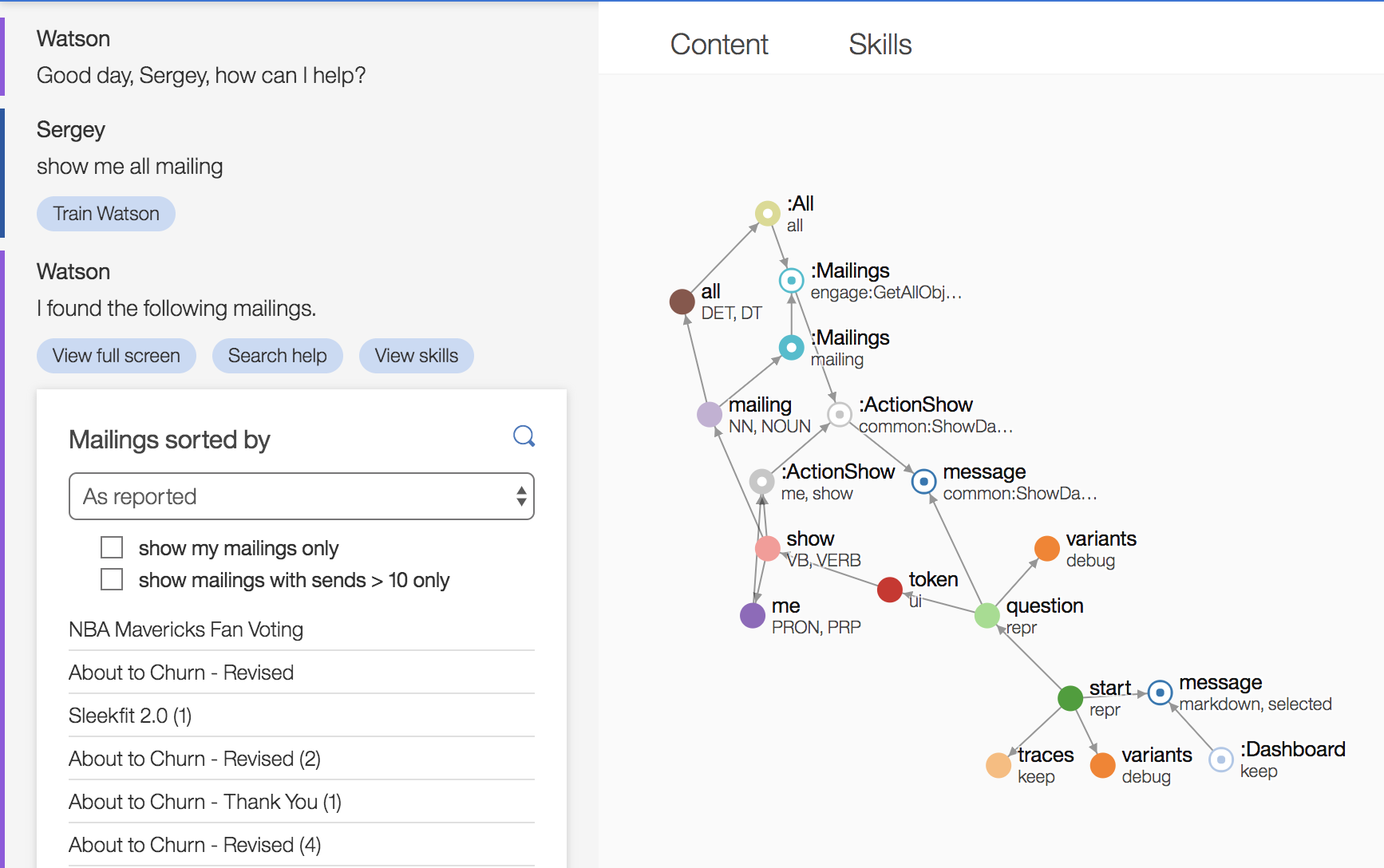IBM Embedded Business AI Framework
Learn
- Getting started
- Programming EBA
- EBA components
- Best practices
- Natural language understanding
- Example agents
Integrate
Help
Plural and singular entity resolution
EBA now has the ability to deduce the correct form of a noun (plural or singular) based on the conversation context and reasoning output. If a user asks for a set of orders in the singular form, EBA will still be able to understand and provide the correct response to end users, as demonstrated in the screenshot below.
It is important to understand that EBA, as an ontology based reasoning engine, naturally distinguishes between a single entity and a collection of such entities. Using the isListOf predicate, users can denote list relationships, where such relationships enable our reasoning core to provide useful aggregation and statisical functionality when querying collections of data. From an NLU point of view, EBA enforces the semantical and syntatical constraints implied by these relationships. For instance, ‘order’ as a singular form token cannot be annotated by the concept :Orders given we have provided a list relationship. If we ask for orders, EBA will produce data for :Orders and, if we ask for a single order, EBA will produce data for a single :Order. However, this can sometime lead to overly strict behavior for end users, as in the case of mistyping, where a user may ask ‘show me order which are late’. Whereas our system was previously unable to produce the expected result because ‘order’, as a single entity, did not support such aggregation, now it can. With this new release, EBA will apply an additional check to detect when singular and plural mismatches are at play. Being able to detect these cases enables us to provide a richer experience to users without sacrificing certain key principles of distinguishing list relationships within an ontology.
